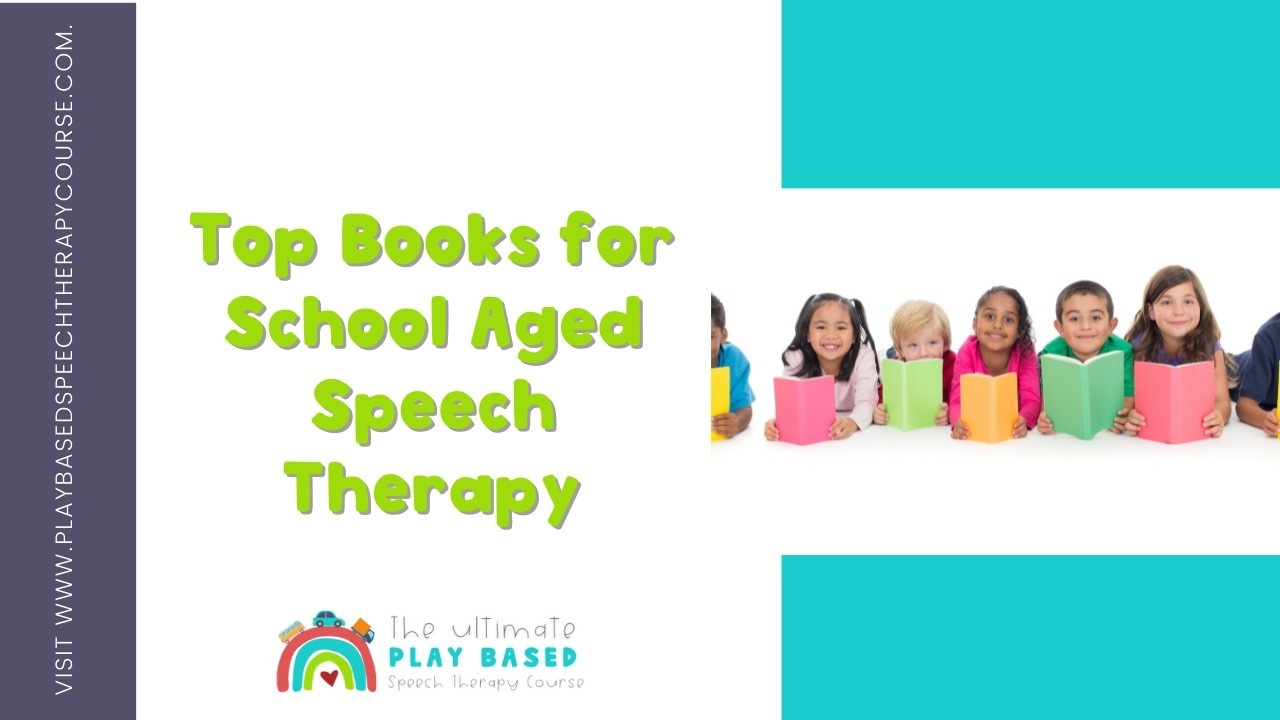
Top Books for School Aged Speech Therapy
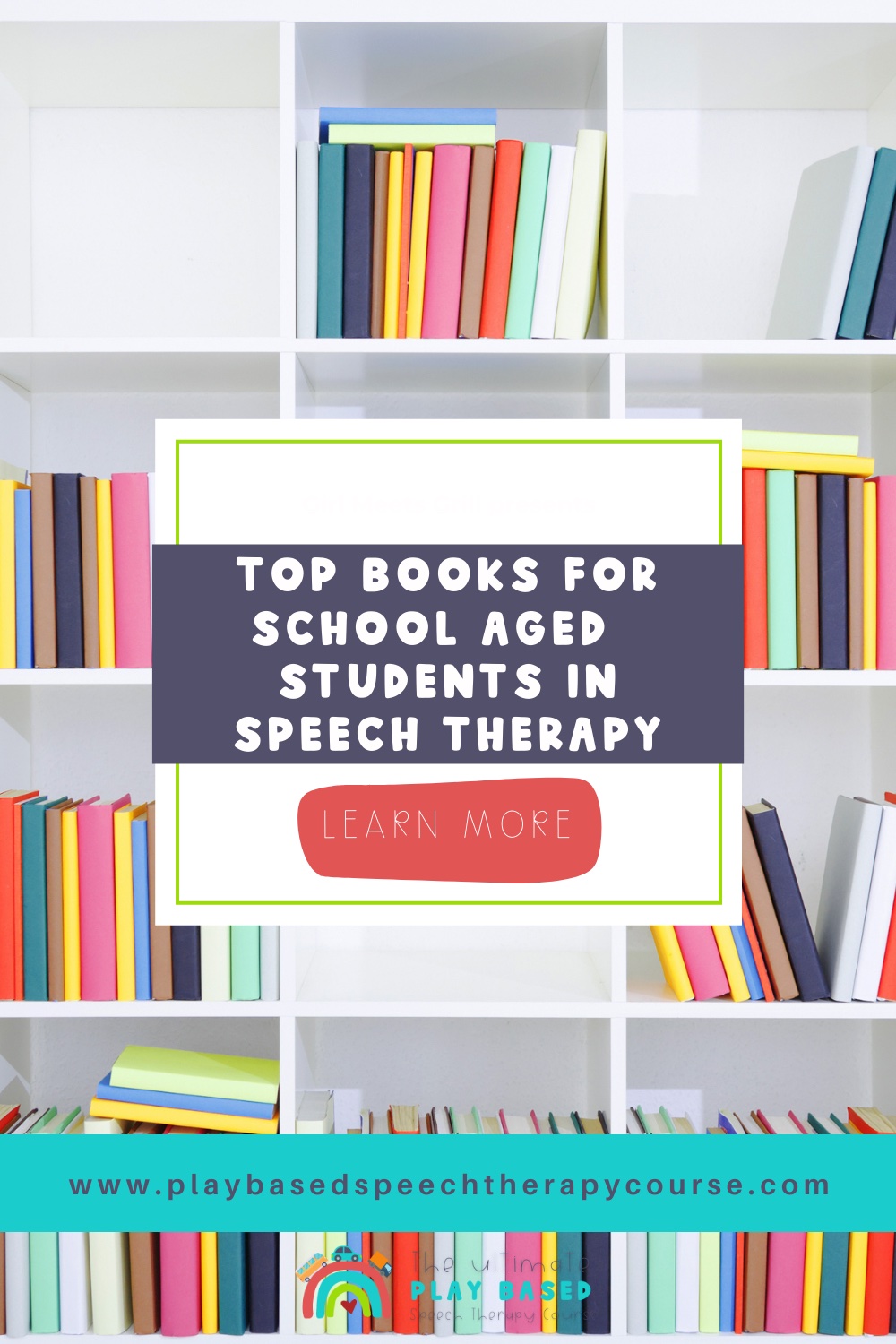
When using books with school-aged students, there are usually 5 things we consider:
1. Does the book use story grammar elements?
2. Does the book use the speech sound or language concept we are targeting?
3. Does the book use a story sequence we can use for story-retell and sequencing skills?
4. Does the books provide opportunities for inferencing?
5. Does the book provide opportunities for phonological awareness skill exposure and use?
These five areas are often areas targeted with school-aged students and are embedded in the child's curriculum.
Here are a few examples:
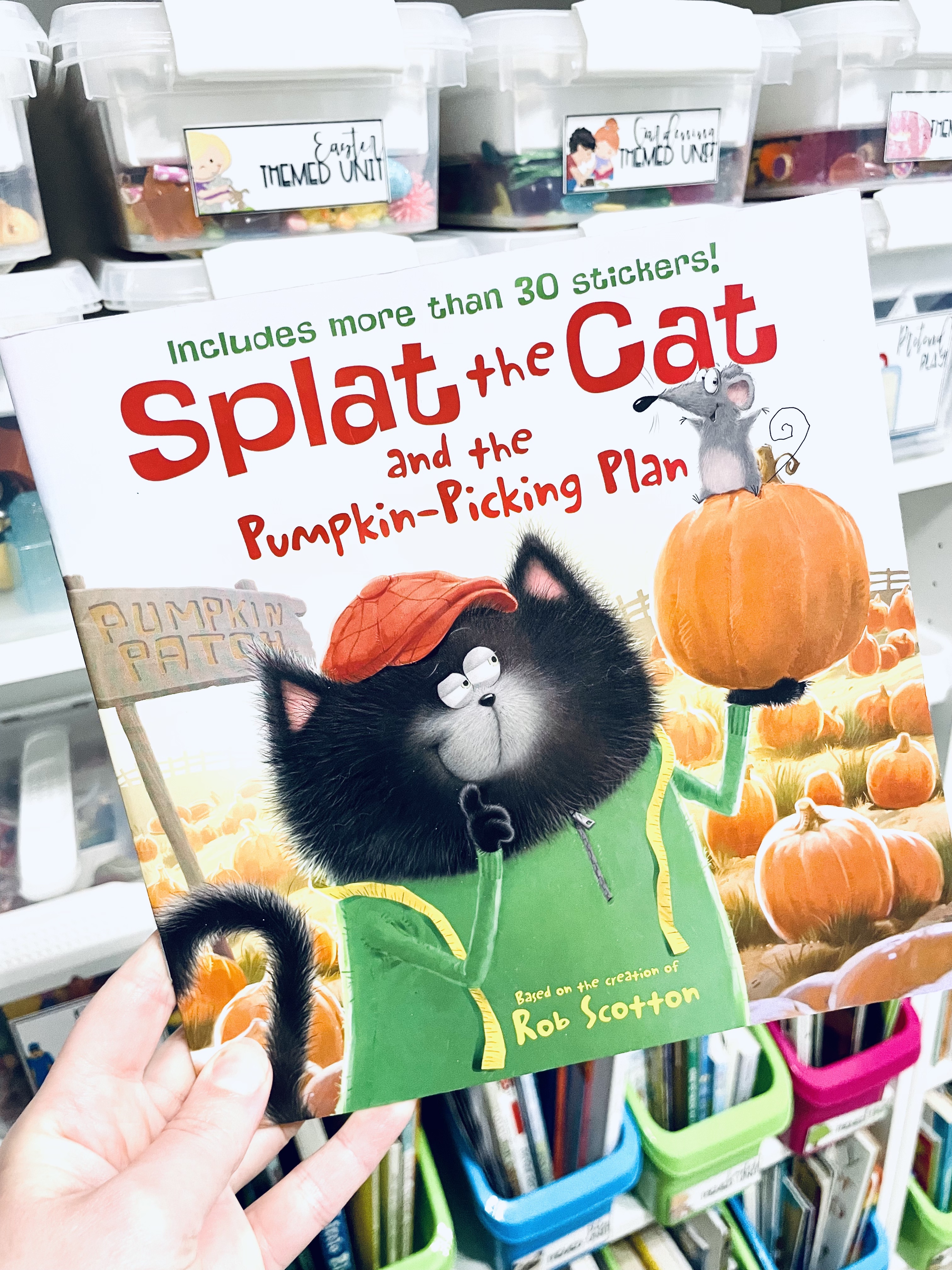
1. Books with Story Grammar Elements: When using books with older students you often want to be looking for stories that have all the story grammar elements (e.g., setting, characters, initiating event, actions that follow the initiating event, problem, feelings of the character in response to problem, solving the problem, ending). Using stories that have story grammar elements help you as a therapist target WH story comprehension questions, story retell, sequencing, inferencing, problem solving, and more! We find our older students LOVE 'Splat the Cat' books, 'Pete the Cat', and 'Froggy' books for this very purpose!
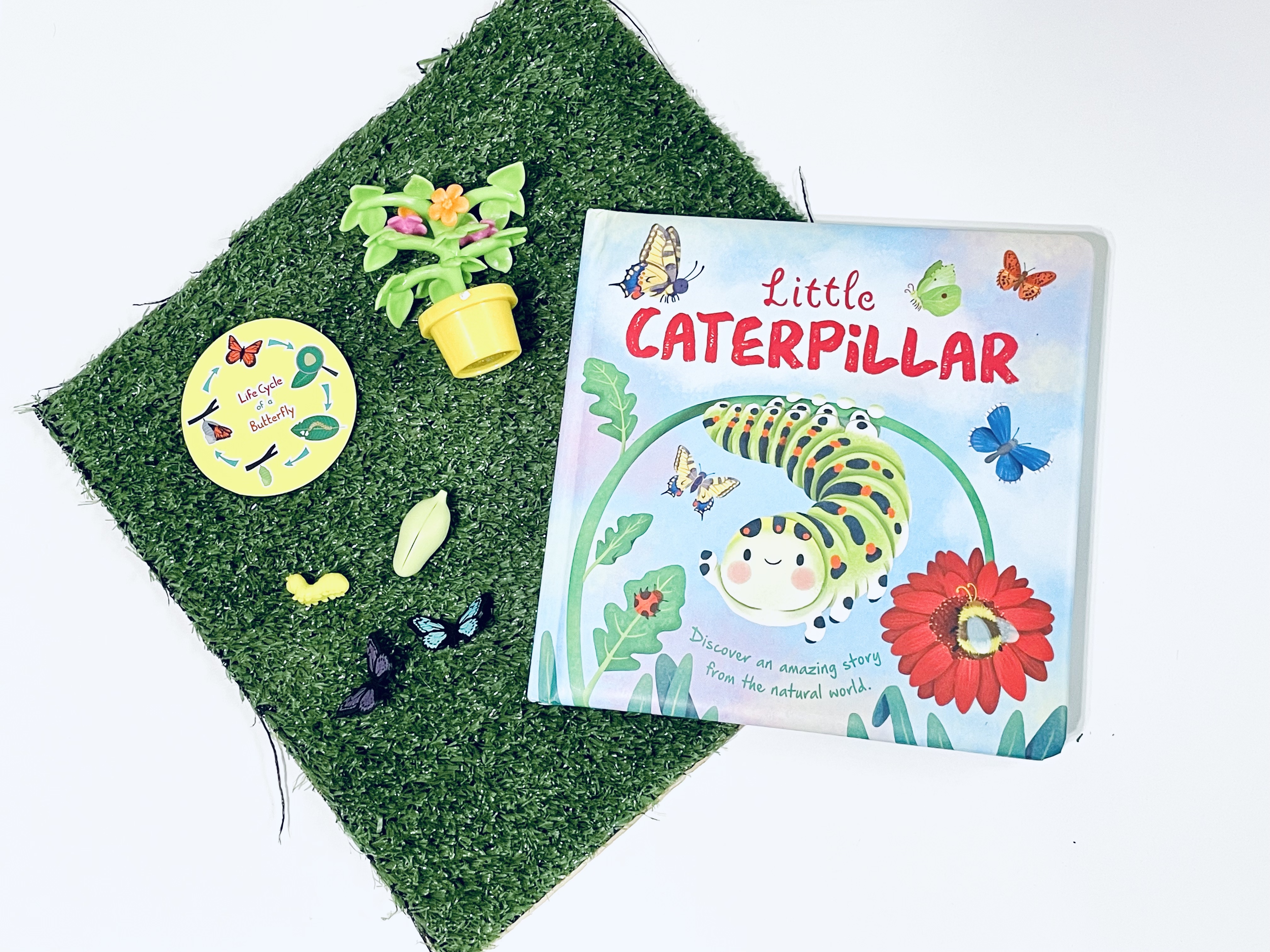
2. Sequencing Books: Books that base the story around life cycles, daily routines, baking, etc. all provide natural ways to expose a child to a sequence before working on it in session. We LOVE using play-props alongside all of our books whether it is with a preschooler or school-aged child. You can do SO much when using play-props with a book. Having the child participate in the reading of a book is so important for setting the child up for success when retelling the story or answering comprehension questions. A great way to target sequencing (whether it be a life cycle or story-retell) is by first exposing the child to the sequence in the story, then retelling the sequence together - you and the child, and then having the child attempt the sequence all on their own!
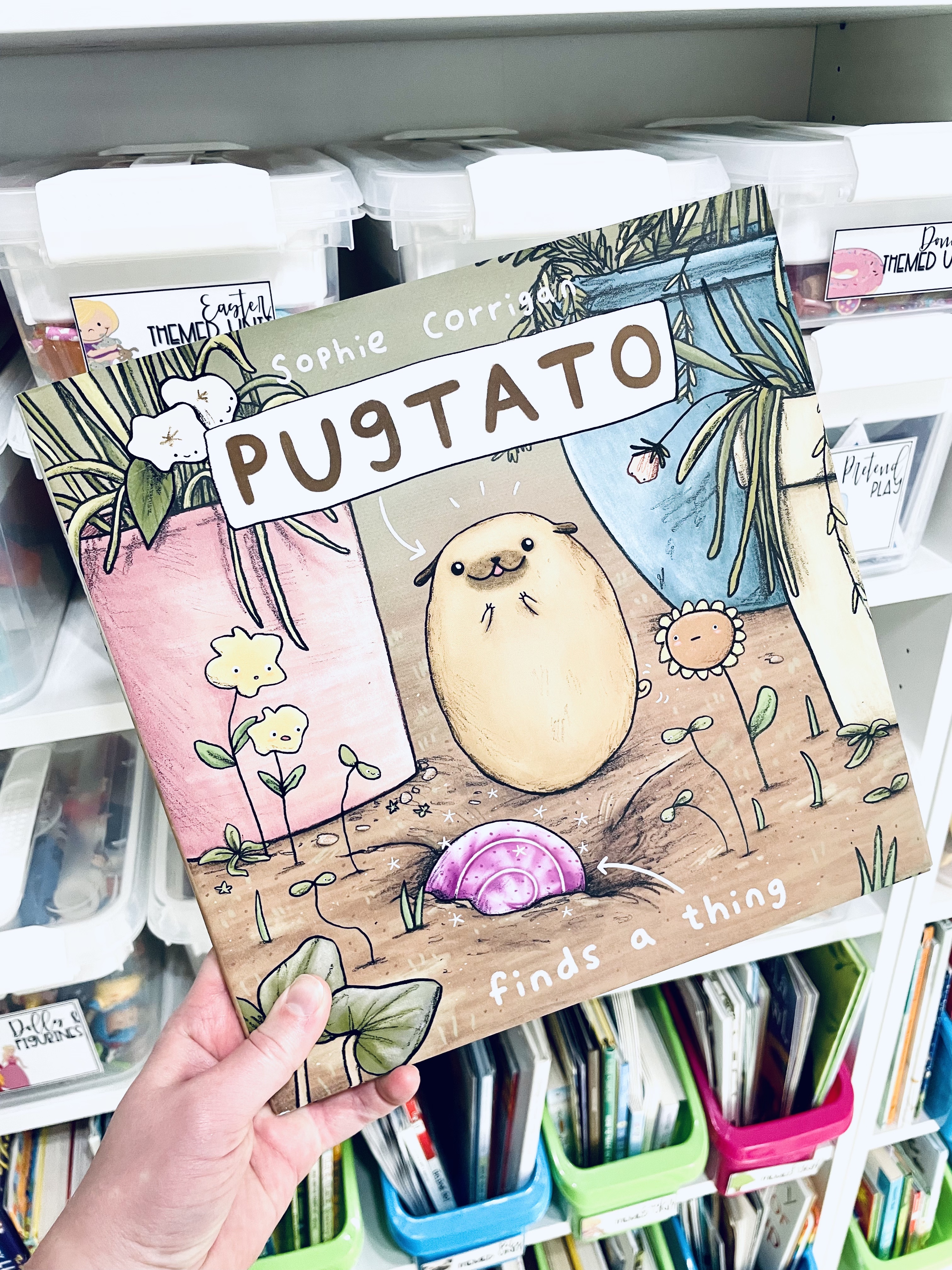
3. Phonological Awareness Books: When working with school-aged students, phonological awareness skills and literacy skills are often on our lists of goals to target! Finding books that work on what you are targeting in session help take some of those abstract concepts and put them in action with an engaging and interesting story for the child to participate in. This particular book is great for decoding and prefix & affix work. You can also utilize books that have heavy rhyming content for rhyming exposure and identification or books that use a lot of the first sound in words for alliteration. Lots of ways to take books and pair them with the skills you are targeting in session!
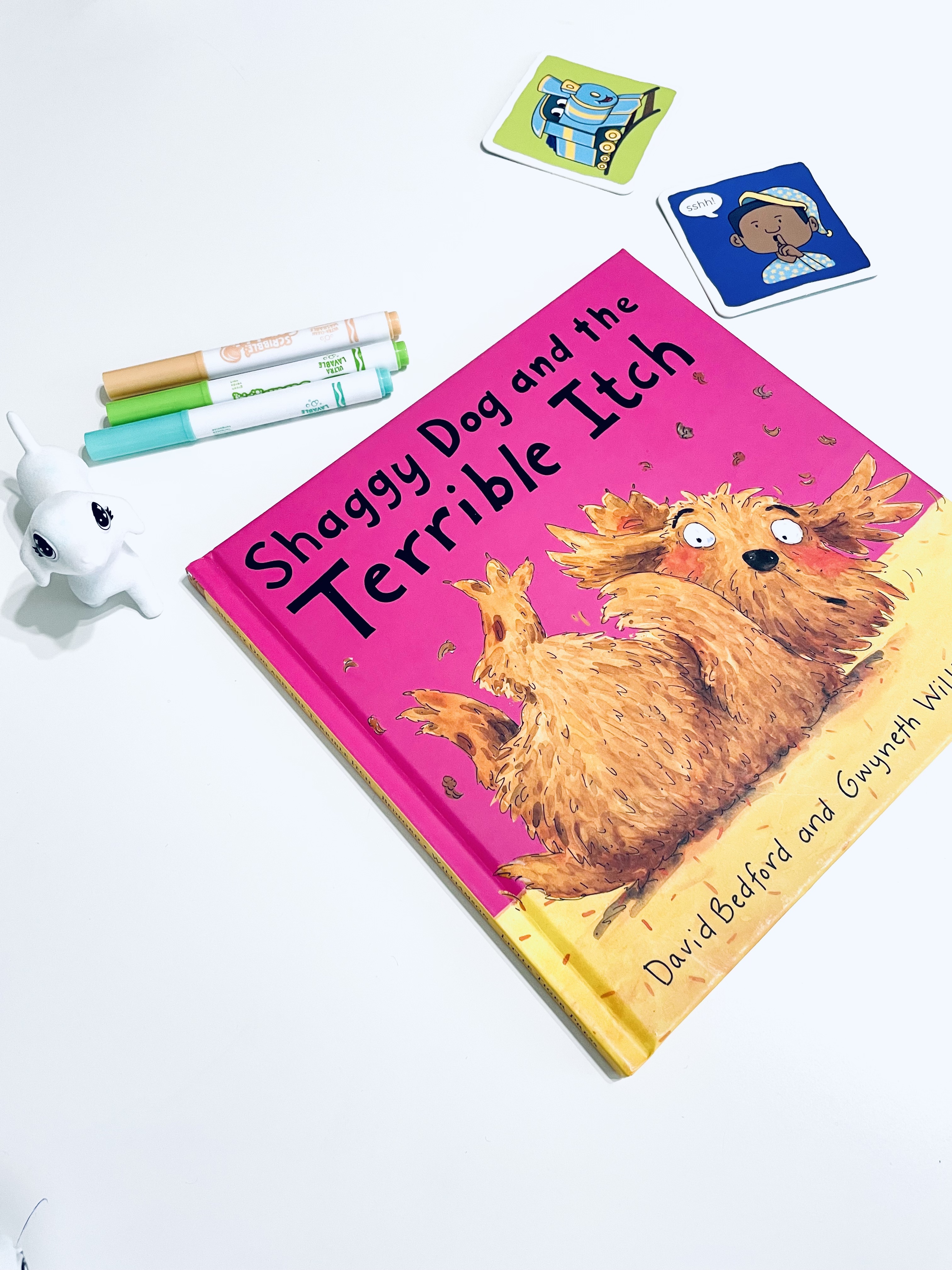
4. Speech Sound Books: Using books that incorporate your speech sound target/s is a great way to start your session off. Emphasize the speech sounds as they come up in the story and even have the child participate in the story by filling in the blank (e.g., every time the dog's name "Shaggy" comes up have the child use their speech sound SH to say it). Auditory bombardment of your speech sounds at the beginning gives the child understanding for what is expected for following activities.
Be sure to check out our other blog posts for our top early intervention and preschool books as well! Want to receive our emails? Be sure to sign up at: https://www.playbasedspeechtherapycourse.com/ For more examples and ideas on how to use a play in therapy check out our free webinar (https://www.playbasedspeechtherapycourse.com/free-play-based-speech-therapy-webinar) !
Get on our Email List!
The waitlist will give you access to an Exclusive Sales, freebies, and Giveaways!

